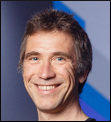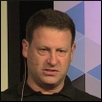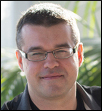
 About JCP
Get Involved
Community Resources
Community News
FAQ
Contact Us
About JCP
Get Involved
Community Resources
Community News
FAQ
Contact Us

|
 |
Java Community Process: Executive Committee Elections Nominees for 2021

|
The 2021 Fall Executive Committee Elections process is now complete. The EC Elections process was launched in June 2000. This election was
hosted by Votenet and closed on 15 November 2021 at 11:59 PM Pacific Standard Time.
The elections results are published. Congratulations to the newly elected and re-elected EC Members, and
thank you to all the nominees and JCP Members for participating in the election!
The PMO hosted the Meet the JCP EC Candidates Zoom webinar on Thursday, 28 October.
The recording of the webinar is now available.
Please refer to the Java Community Process EC Elections page for more information on the Executive Committee Elections.
Please refer to the Executive Committee Information page for more information on the current Executive Committee.
What follows are the qualification statements provided by the candidates for the Executive Committee, along with a
brief biography of the person who would serve as the Member's representative on the Executive Committee if elected,
and a position statement when one was provided.
| 2021 EXECUTIVE COMMITTEE RATIFIED SEAT CANDIDATES |
Arm Ltd
|
Arm is the leading technology provider of processor IP, offering the widest range of processors to address the performance,
power, and cost requirements of every device. Consequently, we understand that well managed standards are crucial to the health
and success of software ecosystems.
Our involvement in Java dates to 2002 when we were involved in a number of JSRs. Arm first joined the JCP J2ME EC in 2012, which
was merged with the J2SE EC. In more recent years, we have been involved in the OpenJDK project, contributing to the various
ongoing projects such as panama and the Vector API, as well as providing optimisations, fixes and implementing missing functionality.
If given the opportunity, we will continue to help ensuring that Java works well for everyone, everywhere, from the smallest to the
largest of systems.
|

Stuart Monteith
|
Stuart Monteith is a principal software engineer in the Open-Source Software group at Arm in Cambridge, UK. There he has worked on virtual
machines, most recently OpenJDK, often under the auspices of Linaro. Prior to this he worked in IBM with the JVM on various Linux platforms
and other projects such as JSR-326. He has worked with Java since 1996 during his degree course at the University of Strathclyde.
|
| | |
Fujitsu Limited
|
Fujitsu has been implementing Java across what is the broadest range of platforms from mobile phones to mainframes. Fujitsu provides
the Jakarta EE compatible implementation Interstage Application Server, which is the vital for building the enterprise mission critical
systems. Fujitsu has been a member of the JCP/Executive Committee since its inception and participated in and/or supported over fifty JSRs.
Fujitsu has contributed OpenJDK and GlassFish. The goal is moving forward Java technologies and building Java eco systems in the cloud native
environments.
|

Kenji Kazumura
|
Kenji Kazumura is working for Fujitsu Limited as a Java Architect and is in charge of developing Interstage which is Java EE certified and
now Jakarta EE compatible application server. He has participated in the Expert Group of JSR 204 and 382. He has more than twenty years’ experience
to build the huge enterprise mission critical Java systems, including mobile communication and financial service. He is now involving the Jakarta EE
and MicroProfile communities to accelerate the cloud native Java echo systems.
|
| | |
IBM
|
IBM and Red Hat have been part of Java standardisation for over a decade, representing the best values of open source development,
communities and innovation. We bring a wealth of experience in growing vibrant open source communities and feeding that experience
into a wide variety of standards efforts, such as those at the JCP, Eclipse, OASIS and W3C. Red Hat and IBM worked actively on
"JSR 364: Broadening JCP Membership", and "JSR 387: Streamline the JCP Program" to help improve the JCP processes, executive committees
and approach to openness.
If re-elected to the JCP Executive Committee both IBM and Red Hat will be represented by a single voting seat. As a unified legal entity,
but operating as two separate companies, we bring many years of community and commercial experience to the role and a focus on high quality
data-driven technical decision making. Our shared goal is for the continued success of open source Java.
|

Mark Little
|
Mark Little leads the technical direction, research, and development for Red Hat JBoss Middleware. Prior to taking over this role in 2009,
Mark served as the SOA technical development manager and director of standards. Additionally, Mark was a chief architect, and co-founder
at Arjuna Technologies, a spin-off from HP, where he was Distinguished Engineer. He has worked in the area of reliable distributed systems
since the mid-80s with a PhD in fault-tolerant distributed systems, replication, and transactions. Mark is also a professor at Newcastle
University and Lyon University.
|
| | |
Intel
|
A significant population of developers and end-users run Java on Intel architecture platforms, providing Intel with unique perspectives on the
Java platform, that of software and hardware working together to move Java forward. Intel has actively contributed to the JCP since 2002,
participated in more than 20 JSRs, worked with major JVM vendors on Java optimizations, published many research papers and participated in
major conferences. Intel is actively contributing to a number of forward looking OpenJDK efforts such as the Panama project.
Intel Position Statement (.pdf file)
|

Stephen Dohrmann
|
Steve Dohrmann is a Senior Staff Software Engineer at Intel. He has worked on various Java projects over the past 20 years, and is passionate
about Java and its future. His Java development work includes the Java Media Framework, mobile agent software, secure collaboration software,
a cryptography framework, embedded parallel programming for Java, and enabling Java to use persistent memory.
|
| | |
Sociedade de Usuários da Tecnologia Java - SouJava
|
SouJava (the "Java Users Society") is an established non-profit organization and Java User Group focused on strengthening the Brazilian Java developer community.
Founded in 1998 and based in São Paulo, SouJava congregates over 40 thousand members throughout the country. SouJava was the first JUG to join the JCP and has
been active in the Process for almost a decade. During this time, the group had an important role on the open source of Java, to the point that Dr. Dobbs Magazine
considered at the time Brazil as the reason for the release of OpenJDK. For the last two years, SouJava has used its role in the JCP EC to improve the participation
of JUGs, individuals and small companies into shaping the future of Java by participating strongly on the Adopt-a-JSR program, with 80+ of the groups members involved
in promoting and adopting JSRs and also leading the discussions that propose to increase membership and participation from individuals and non-profits into the JCP.
SouJava considers the JCP a fundamental part of the Java ecosystem. The long-term success of Java depends on a process that encourages vendors, developers and users
to contribute and innovate, and that gives everyone the necessary rights to implement the results. SouJava is committed to ensuring that the JCP is balanced and
transparent, and that there is an equal standing among JCP members. As an active participant in open-source efforts, the group intends to help ensure that FOSS
projects and implementations of Java standards are able to both bring contributions, and also to share process results. As a leading member of the worldwide Java
Users Group Community, SouJava is committed to defend and promote JUG participation at the JCP.
For the last two years, as member of the JCP EC, SouJava has strived to bring its passion for community, JUGs, open source, standards, and Java to the JCP, and thus
foster transparency and participation. After two years of strong involvement, we look forward to increase even more our relationship with the Java community, and
we appreciate your support so we can continue to work towards a better JCP.
|

Bruno Souza
|
Bruno Souza is a Java Developer and Open Source Evangelist. As founder and coordinator of SouJava (Sociedade de Usuários da Tecnologia Java; Java Technology
Users Society) and leader of the Worldwide Java User Groups Community at Java.net, Bruno helped in the creation and organization of hundreds of JUGs worldwide.
For the past 2 years, Bruno has represented SouJava on the JCP EC, where he has defended transparency and participation as means to improve the process.
A Java Developer since the earliest days of the technology, Bruno took part in some of the largest Java projects in Brazil. Bruno is a Principal Consultant
at Summa Technologies, and has extensive experience in large projects in the Government, finance and service industries. A Cloud Expert at ToolsCloud, he
promotes and develops cloud-based systems using Java. Nurturing developer communities is a personal passion, and Bruno works actively with Java open source
communities and projects.
Bruno Souza is a Director of the Open Source Initiative (OSI), President of the innovation-focused Campus Party Institute, and Coordinator of Nuvem, the
Cloud Computing Lab of LSI/USP. When not in a computer, Bruno enjoys time with his family in a little hideout near São Paulo, where he tends to his other
passions of being an amateur father and puppeteer.
|
| | |
| 2021 EXECUTIVE COMMITTEE ELECTED SEAT CANDIDATES |
Amazon.com Services, Inc
|
Java is one of the most popular languages in use by Amazon and AWS customers, and we are committed to supporting Java
and the OpenJDK project. Amazon has a long and deep history with Java running thousands of production services, including
running some of the world's largest Java deployments on Corretto, our no-cost, multi platform, production-ready distribution
of OpenJDK. Amazon is among the biggest external OpenJDK contributors. We are heavily involved in the OpenJDK tip, 8u and 11u
Update projects and are a member of the OpenJDK Vulnerability Group. We've released ACCP, the Amazon Corretto Crypto Provider,
which drastically improves the performance of cryptographic operations and are developing Generational Shenandoah, a generational
extension for the Shenandoah garbage collector which enables Shenandoah to take more load and reduce GC pauses and latency. If elected
into the JCP EC our main focus will be to represent the voice of developers and users of applications as small as a few lines of Lambda
functions up to the largest enterprise applications. We will also represent our continued shepherding of security, stability, performance,
and observability of Java. Both for future development as well as current LTS versions.
|

Volker Simonis
|
Volker Simonis is a Principal Software Engineer in the Corretto team at Amazon Web Services. He works on Java Virtual Machines since 2004
and is an OpenJDK Member, Reviewer and Committer right from the start. Before joining Amazon he worked for SAP, Sun Microsystems and the
University of Tübingen from where he holds a master and PhD degree in Computer Science. He represented SAP in the Executive Committee of
the JCP and was a member of the JCP Expert Groups for Java SE 9 to 13. He's a passionate and frequent speaker at conferences around the
globe and can easily be contacted at Twitter as @volker_simonis.
|
| | |
Azul Systems
|
Azul was a community elected member of the JCP EC from 2011 to 2020. Azul's runtimes are available in both widely adopted free forms and
with optional commercial support; they are used across enterprise, cloud, developer, and embedded environments.
During its time on the JCP Executive Committee, Azul was an active advocate for community interests within the EC and was recognized
as "JCP Member of the Year." at JavaOne in 2013. Azul took decisive and successful positions on protecting community rights, access to
technology, including the OpenJDK Community TCK. Azul also championed the roles and influence Java developers should have on the process.
Azul has taken the position that the Java community process should be influenced by the developers who use the technology standards produced,
not limited to the companies that define and form those standards. Beyond our work on the EC, Azul has been a member of the JSR Expert Group
since Java SE 9.
Azul has been an enthusiastic OpenJDK community member, often leading the way in new forms of community contribution and participation.
Azul was the first non-Oracle company to author an OpenJDK JEP included in the Java specification. Azul introduced the Mid-Term Support
(MTS) concept for OpenJDK and has led the OpenJDK 13u and 15u update release efforts. Azul is a key contributor to OpenJDK update projects
that keep the various OpenJDK releases up to date. As an early member of the OpenJDK Vulnerability Group, Azul has been responsible for a
significant portion of the security updates delivered in the various community maintained OpenJDK updates projects, including 7u, 8u, 11u,
13u and 15u. In recent years, Azul has mentored and collaborated with many of the newer OpenJDK distributors, intending to strengthen community
support and contribution around the Java platform.
Azul Systems Position Statement (.pdf file)
|

Gil Tene
|
Gil Tene is CTO and co-founder at Azul Systems and has been active on the JCP EC since 2011 and was recognized as "JCP Member of the Year". Gil
is an official "JavaOne Rockstar" and Java Champion, and a frequent speaker at developer conferences and JUGs. Gil has been building virtual
machines for over 25 years. He founded Azul Systems with the goal of eliminating common Java responsiveness and deployment scalability barriers
and pioneered several Java firsts, including Pauseless Garbage Collection, which has since made its way into modern collectors in the form of
both C4 and ZGC. Outside of his day job, Gil has remained an active OSS developer and contributor for over 20 years. In past lives, he also
designed and built operating systems, network switches, firewalls, and laser-based mosquito interception systems.
Simon Ritter is Deputy CTO at Azul Systems and has represented Azul on all the Java SE expert groups since Java SE 9. Simon started working
with Java shortly after joining Sun Microsystems in 1996. He has been evangelizing the Java platform since 2000 and rose to manage the Oracle
Java Technology Evangelism team prior to joining Azul in 2015. Simon is a recognized Java Champion and has twice been awarded "JavaOne Rockstar"
status. He is an avid and in-demand speaker at developer events. He has presented at virtually every Java conference around the world on a wide
variety of subjects including various areas of Java SE and Java EE, as well as embedded Java and JavaFX. In these strange times, Simon continues
to present, online, at conferences and Java User Groups (JUGs) worldwide.
|
| | |
Chicago Java Users Group
|
As a large community group (roughly ~3000 members), our primary focus as part of the JCP will be to engage the Chicago Java community with the
JCP and utilize interests from the community to help direct our views regarding future JSRs. We hold a number of meetups each month, many of
which are now fully online or hybrid due to the pandemic. CJUG is actively involved in the Java community as a whole, and is currently one
of the hosts for the jconf.dev conference. We are also involved in the community as a MicroProfile Community members, and we host a number of
open source meetups each year to assist developers with get started in making contributions to open source projects. We cultivate relationships
with other User Groups worldwide. If elected, we will represent the community through the JSR processes and other JCP initiatives, as we
continue to evangelize and contribute to the Java ecosystem.
|

Josh Juneau
|
Josh Juneau started working with Java in the early 2000s. In his day job, he works as an application developer, system analyst, and database
administrator. He primarily develops using Java and other JVM languages and specializes in Jakarta EE. He is an author and speaker, and
was a JCP Expert Group member for JSR 372 and JSR 378. Josh is an active contributor to Apache NetBeans. Josh started helping the Chicago
Java Users Group years ago, where he was Director of Meetings for two years, and he is now acting as a CJUG board member. Josh is a Java
Champion, and a co-host for the "Java OffHeap", "Stackd", and "Breaking Into Open Source" podcasts.
|
| | |
Deep Netts
|
Zoran Sevarac is a co-lead of the expert group for JSR 381 Visual Recognition API using machine learning. His work is focused on Deep Netts
which is a deep learning toolkit for Java Platform, which provides community edition of it's deep learning engine which is used for reference
implementation of Visual Recognition API. One of the main goals of his work is to make machine learning no. 1 citizen on Java platform,
and support evolution of Java platform towards that direction. With his bacground, he brings to EC expertise for AI, applied machine learning
API and developer tools. During his work he participated in two JCP EC meeting during which he presented JSR 381. The JSR381 expert group also
had significant succcess in community building, attracting contributors and presenting their work to Java User Groups (New York, San Diego, Mumbai).
|

Zoran Sevarac
|
Zoran Sevarac is a professor of software engineering and AI at University of Belgrade and CEO of Deep Netts. His main interests are machine
learning, software engineering, development tools and Java. He is the Apache NetBeans contributor and contributor to several Java machine learning
related initiatives. He is Java Champion and Dukes's choice Award winner for the educational neural network software Neuroph.
|
| | |
Tomitribe
|
Tomitribe is a proud supporter of Jakarta EE, MicroProfile and Open Source and built on the belief that everyone has a role with open source
and open standards. Tomitribe is dedicated to supporting both Apache TomEE, the greater Java ecosystem and participates on a variety of
specifications. We are deeply passionate about standards in Java, know the JCP is critical to our industry and we share great responsibility
to actively participate in its continued success.
Tomitribe Position Statement (.pdf file)
|

David Blevins
|
Founder and CEO of Tomitribe. Veteran of Open Source Java EE in both implementing and defining JavaEE specifications for nearly 20 years
with a strong drive to see JavaEE simple, testable and as light as Java SE. Co-Founder of OpenEJB (1999), Geronimo (2003), TomEE (2011).
Member of the Java EE 7 and EJB 3.2 Expert Groups, past member of the Java EE 6, EJB 3.1, and EJB 3.0 Expert Groups. Contributing author
to Component-Based Software Engineering: Putting the Pieces Together from Addison Wesley.
|
| | |
Twitter
|
Twitter relies on the JVM as the language runtime for its services, with almost all of our services being written in Scala or Java.
We are solving uniquely challenging problems when it comes to designing software at our scale and are developing libraries for
scalable I/O, distributed scatter-gather, and system monitoring and management. We want to ensure that our systems will continue to cope
with current traffic levels (for example, hundreds of millions of tweets sent per day) and will be able to scale to higher traffic levels in
the future. We also want to ensure that our services run efficiently at data center scale, maintaining high quality of service, while minimizing
data center footprint.
We hope to bring our insight in high traffic, low latency, large deployment, multi-language systems when evaluating and giving feedback on new JSRs
in order to expand and enhance the Java platform in the most constructive and useful way.
Since its inception, Twitter has had a very strong record of community involvement, with most of our internally developed software (Finagle,
our asynchronous RPC framework, Heron, Scalding, etc.) being open sourced, and with additional contributions to many other open-source projects.
Twitter gets enormous value from OpenJDK being an open-source platform. We have a dedicated team, the #TwitterVMTeam, that is responsible for
building, deploying, maintaining, and extending OpenJDK with Twitter-specific changes to optimize it for our workloads and use-cases. We have
been an early Graal adopter and are actively working to improve its performance on our Scala code. Many of these enhancements and improvements
are generally applicable, and we have contributed back such changes to the relevant upstream projects (OpenJDK, Graal, etc.).
The main goal of Twitter's JCP involvement is to ensure that OpenJDK remains a viable, high performance, and fully-featured open source platform.
Twitter Position Statement (.pdf file)
|

Tony Printezis
|
Tony Printezis is a Staff Software Engineer at Twitter and a member of the #TwitterVMTeam. He has 20+ years of virtual machine and language
runtime implementation experience, with special focus on memory management, and he is an OpenJDK / HotSpot group committer and reviewer. He was
one of the designers of the G1 GC and the original implementer of the CMS GC. Before Twitter, Tony worked at Adobe, Oracle, and Sun. He
holds a PhD and a BSc(Hons) in Computing Science, both from Glasgow University.
|
| | |
| 2021 EXECUTIVE COMMITTEE ASSOCIATE SEAT CANDIDATES |
Abidjan Java User Group
|
Founding member and leader of Abidjan Java User Group since its creation in 2013.
|

Athanase Kouassi
|
- Project Manager
- Java Developer
- Motivational speaker
- Member of JCertif International
- President of JCertif Côte d'Ivoire
|
| | |
Ixchel Ruiz
|
Ix-chel Ruiz has a track record of helping Java developer communities across the globe. She participates often at
international events as event organizer, speaker, and mentee. Ix-chel has a keen eye for establishing relationships
and links between people, allowing them to reach new heights.
|

Ixchel Ruiz
|
Ix-chel Ruiz has developed software application & tools since 2000. Her research interests include Java, dynamic languages,
client-side technologies and testing. Java Champion, Oracle Developer Champion, hackergarten enthusiast, Open Source advocate,
public speaker and mentor.
|
| | |
Miroslav Wengner
|
N/A
|

Miroslav Wengner
|
Miro is a member of the JCP program for very long time. He contributes actively to the OpenJDK, Java Mission Control/Flight
Recorder project. His focus is on java performance and maintainability. Miro has also contributed/is contributing to various
another open-source project such as OpenTracing, Pi4J and etc. He is also co-author of Robo4j project which has been awarded
by DukeChoice Award 2017. Miro has been recognised as JavaChampion, RockStar speaker. He share is knowledge over conferences
(JavaOne,CodeOne,Devoxx, GeeCON etc.) and blogging. Miro believes in Java ecosystem and want to help to move it forward!
|
| | |
ABOUT THE JAVA COMMUNITY PROCESS (JCP) EXECUTIVE COMMITTEE
Under the JCP 2.11 rules, the EC has resized. In 2021 and going forward, there will be 11 Ratified Seats, 4 Elected Seats, 2 Associate
Seats and the permanent seat held by Oracle America. Members serve 2-year terms that are staggered so that 8 or 9 of the 17 seats are
normally up for ratification/election each year.
The EC members guide the evolution of the Java technologies. The EC
represents a cross-section of both major stakeholders and other members
of the Java Community. Duties are: select JSRs for development, approve
draft Specifications for Public Review, approve Final Specifications,
review TCK appeals, approve Maintenance revisions and possibly defer
some features to a new JSR, approve transfer of maintenance duties
between members and provide guidance to the Program Management Office
(PMO). For more information on the EC, see the Executive Committee Info
page http://jcp.org/en/participation/committee.
2020 EC Elections Results
2019 EC Elections Results
2018 EC Elections Results
2018 EC Special Elections Results
2017 EC Elections Results
2017 EC Special Elections Results
2016 EC Elections Results
2015 EC Elections Results
2014 EC Elections Results
2013 EC Elections Results
2012 EC Elections Results
2011 EC Elections Results
2010 EC Elections Results
2009 EC Elections Results
2008 EC Elections Results
2007 EC Elections Results
2006 EC Elections Results
2005 EC Elections Results
2004 EC Elections Results
2003 EC Elections Results
2002 EC Elections Results
2001 EC Elections Results
2000 EC Elections Results
For more information on the JCP, see the JCP Overview page.
Contact the PMO for election questions at pmo@jcp.org.
|
 |
|